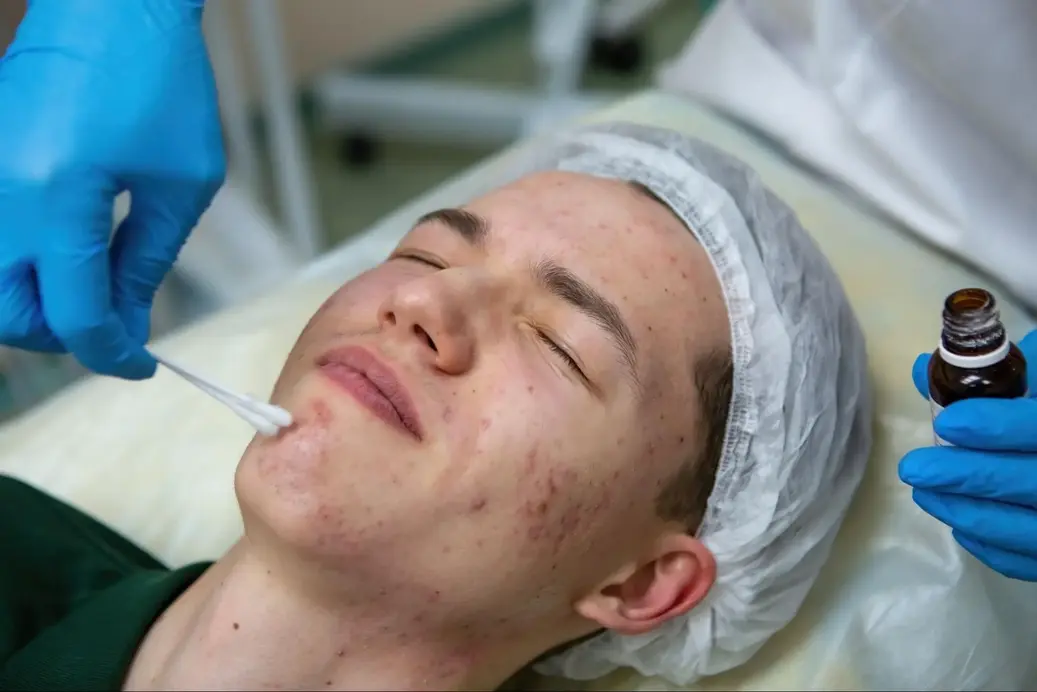
“Barrier repair” isn't just a skincare trend, it's a crucial part of maintaining healthy, resilient skin. In 2025, the conversation around skin barrier health has taken center stage, and for good reason. When your barrier is compromised, everything from hydration loss to inflammation and sensitivity can follow.
But many people unknowingly sabotage their skin barrier with daily habits and product choices. If you've been struggling with tightness, redness, breakouts, or that “nothing works anymore” feeling your skin barrier might be crying for help.
Here are the top 5 mistakes dermatologists often see and how to fix them.
Exfoliation can be beneficial in moderation, but too much of it especially with physical scrubs or high-strength acids can strip away essential oils and compromise your protective barrier.
Signs you're overdoing it:
What to do instead:
Limit exfoliation to 1‐2 times a week, and choose gentle acids like lactic acid. Pair it with soothing, barrier-friendly ingredients like ceramides or panthenol.
Many popular foaming cleansers contain sulfates or have a high pH, which can disrupt the skin's acid mantle and its natural defense shield.
Why it matters:
A disrupted barrier leads to dehydration, inflammation, and a higher chance of breakouts or eczema flare-ups.
Choose instead:
Layering multiple powerful ingredients like retinol, AHAs, vitamin C, and benzoyl peroxide may sound like the fast track to flawless skin but it can be a recipe for irritation if not done carefully.
Better approach:
Focus on one or two active ingredients at a time. Alternate them on different days, and always support your routine with hydrating serums and a barrier-repairing moisturizer.
Even oily or acne-prone skin needs moisture. Skipping moisturizers or using ones without barrier-supporting ingredients can delay skin healing and increase water loss.
Barrier-repairing ingredients to look for:
Tip:
Apply moisturizers on damp skin to lock in hydration more effectively.
You might not feel the damage right away, but UV radiation is one of the fastest ways to break down your skin barrier. Without daily sun protection, your skin is more vulnerable to pigmentation, wrinkles, and chronic sensitivity.
What to do:
Apply a broad-spectrum SPF 30 or higher every morning even on cloudy days or when staying indoors. If you use active treatments, sunscreen becomes even more essential.

Your skin barrier is your first line of defense against pollution, UV damage, dehydration, and inflammation. When it's strong, your skin feels calmer, looks clearer, and responds better to treatment. When it's compromised, even the best products can feel ineffective or irritating.
The good news? With the right knowledge and adjustments, your barrier can heal and rebuild over time.
At Prime Skin Clinic, we often see patients struggling with issues that trace back to a compromised barrier dryness that won't go away, post-acne redness, or unexplained irritation. Our personalized skin assessments and barrier-repair treatments are designed to restore balance and calm, using a science-backed, minimal-intervention approach.
Whether you need help choosing the right skincare routine or you're looking for clinical-grade solutions that support skin recovery, we're here to help.
Book a consultation and give your skin barrier the support it deserves.